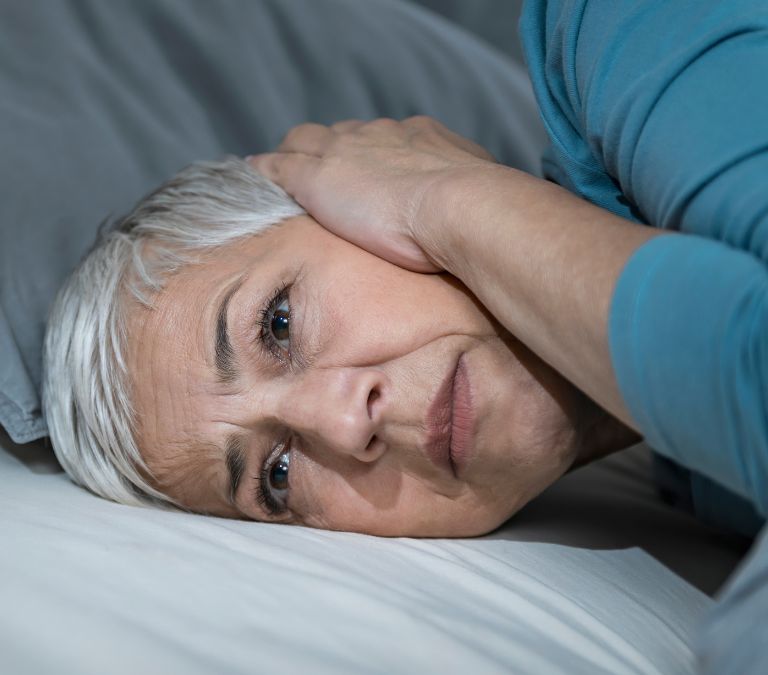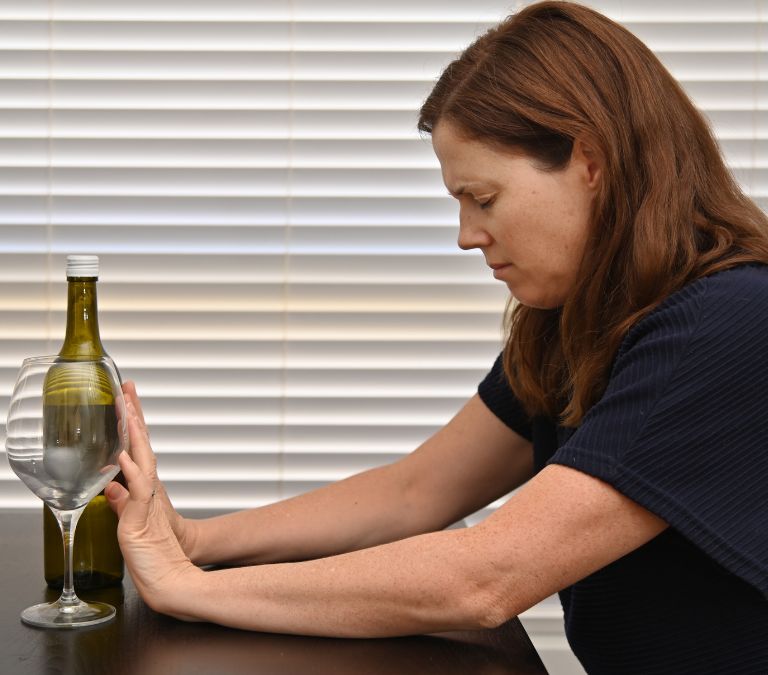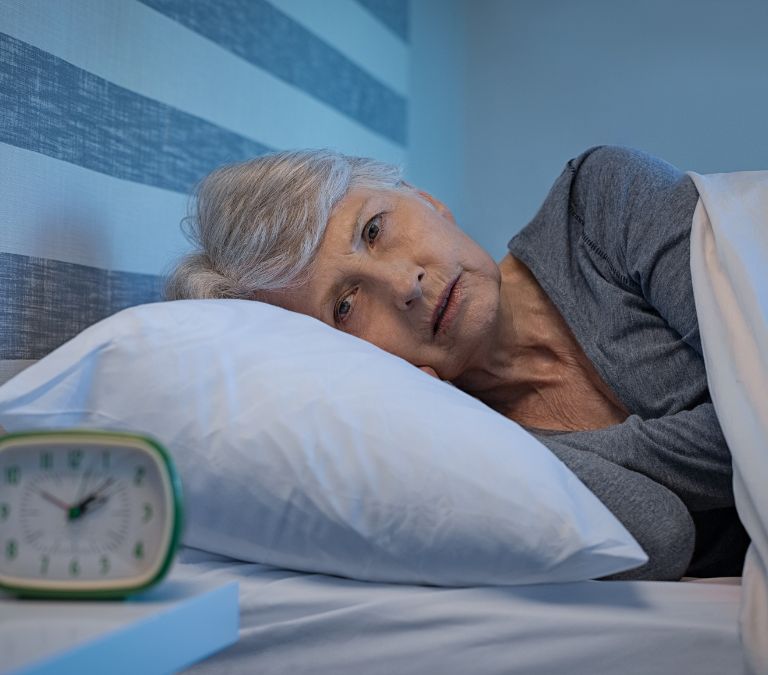For every human, the state of their immune system is a top health concern. The immune system is an intricate part of our body that responds to every environmental change. It plays a great role in protecting us from harmful foreign bodies.
The immune system’s performance depends largely on genetics. However, factors like lifestyle choices also influence how it works.
Menopause, on the other hand, is considered a life-changing stage that affects women both physically and emotionally. But how does your immune system respond to menopause? This piece discusses all you need to know about the connection between the immune system and menopause.
How Does the Immune System Work?
The immune system comprises cells, proteins, and chemical reactions that fight pathogens and infections.
Thousands of white blood cells in the immune system are manufactured in the bone marrow and travel through the tissues and blood to the whole body. Our bodies are always under attack by foreign bodies like fungi, viruses, and bacteria. Every time our body successfully combats a pathogen, it recognizes and can quickly fight it if it enters the body again.
Vital proteins, known as antibodies, help neutralize the infections and toxins produced by the pathogens attacking the body. Another significant part of the immune system is the spleen which helps filter blood.
The lymphatic system is another component of the immune system, composed of thousands of lymph nodes that help trap harmful microbes that can harm the body.
The immune system also plays a role in the body thermostat; when pathogens attack the body, it causes a rise in body temperature, which destroys the foreign bodies.
Today, the human body is exposed to factors like radiation, pollutants, plastics, and other forms of toxins that are constantly inundating the immune system. This, together with the overprescription of certain medications, has made certain bacteria resistant to treatment, thus making it harder for the immune system to combat infections.
Also, viruses constantly mutate, making it hard for the immune system to recognize them when they invade the body. There are also cases where the immune system ‘tagged’ some substances as harmful while they are harmless, as in the case of allergic reactions. The immune system can also identify some body structures as foreign, thus resulting in an autoimmune reaction.
The Immune System and Menopause
So is there any change in the immune system’s performance during menopause? It’s a fact that as humans age, their biological functions decline, and so is the case with the immune system.
During menopause, there’s a drastic decrease in the levels of the T-cells, which form a significant part of the immune system. The T-cells aid in fighting malignant cells and bacteria and overlook the immune response of the whole body.
The decrease in the levels of estrogen and progesterone during menopause has been linked to a decrease in immune function.
A 2013 study has linked menopause with increased inflammation and a decline in immune response, which exposes women to the risk of several infections.
It has also been proven that women are at more risk of developing autoimmune conditions indicating that sex hormones help mitigate the risk of such diseases. As women approach menopause and the level of these hormones decreases, they become more exposed to these autoimmune diseases.
Factors that Impact Immunity at Menopause
There are a lot of factors that affect your immunity at menopause, making you more susceptible to certain health conditions. Some of these factors are discussed below:
Aging:
At the back of the breastbone sits a small gland called the thymus, which produces progenitor cells that turn into T-cells and perform a greater part of the immune system functions. As women age, the thymus shrinks, becomes less active, and produces a small number of progenitor cells, leaving your immune system with few T-cells to fight invaders.
When this happens, the immune system becomes less active in responding to foreign bodies. This increases the risk of menopausal women getting sick.
The immune system can also mistake healthy body tissues for harmful ones and destroy them, leading to autoimmune disorders.
It will take more time to heal if you get injured since fewer immune cells can hasten the healing process. The ability of the immune system to detect and damage harmful cells also decreases, thus increasing the risk of diseases.
Decrease in the Levels of Estrogen:

The levels of estrogen in the body have a great impact on the immune system. Before menopause, the body produces a lot of DHEA, progestogen, and estrogen that help keep the immune system active. During menopause, the level of these hormones declines, and the immune system becomes weaker.
However, when estrogen levels become too high, it stimulates the antibodies and pushes immune signals causing autoimmunity. Therefore, a moderate estrogen level is needed to have a balanced immune system.
Stress
Stress is a common symptom of menopause, and it’s known to weaken the immune system and affects how it works. When exposed to chronic stress, more cortisol will be released by the body.
Cortisol, in normal amounts, works as an anti-inflammatory and helps boost immunity. However, when elevated, cortisol affects the production of white blood cells and suppresses the immune system. When there are not enough white blood cells, your body won’t be able to effectively hunt for invaders and destroy them.
So, chronic stress experienced by most menopausal women makes them susceptible to diseases they otherwise would fight with a strong immune system.
Lack of Sleep

It is a well-known fact that lack of sleep can hurt your immune system. Research has shown that people who don’t get enough sleep are more likely to fall sick when exposed to a virus and will likely take longer to recover from an ailment.
And in menopause, women experience symptoms like hot flashes, night sweats, and insomnia, which makes it hard for them to have a proper night sleep.
Certain proteins called cytokines are produced by the immune system when you’re sleeping. These proteins help promote sleep and have anti-inflammatory properties. Lack of sleep causes a reduction in the production of cytokines making the immune system less active.
Fatigue
Most women experience fatigue at menopause. Chronic fatigue makes us reluctant to perform our daily activities. If you’re extremely tired, you won’t be able to exercise, and proper exercise helps boost the immune system.
Also, when you’re fatigued, you hardly eat a healthy diet; rather, you resort to eating sugary and processed foods. Again, eating unhealthy foods makes the immune system weaker.
So women who are always exhausted during menopause and tend to exercise a little and eat more sugary food might have a suppressed immune system.
Autoimmune Diseases
When there’s an autoimmune disease, the immune system becomes confused about what’s healthy body tissue and what’s a harmful pathogen.
Research has shown that about 80% of humans affected with autoimmune disorders are women, which tends to happen more during periods of hormonal imbalance like menopause.
In some women suffering from autoimmune disorders, menopause worsens symptoms, while in others, it lessens the symptoms.
Gut Health
Your gut has a lot of impact on your immune system as the two are in constant connection throughout your life. The microorganisms in the gut help in regulating how chemical reactions take place in your body.
There are both harmful and beneficial microbes in the gut. When the balance between the two is disturbed, your immune system may not function as it should.
A study has linked the balance of microorganisms in the female guts with estrogen levels. Because of this, when estrogen levels change during menopause, the gut microbiome is disturbed, and the function of the immune system is also affected, putting women at greater risk of infection.
6 Ways To Boost Your Immunity During Menopause
Menopause lowers our immunity, thus making it essential to take steps that will boost the performance of our immune system.
Here are 6 simple yet effective ways to do that:
Try to Relax
We understand that menopause comes with many changes that might overwhelm you. However, anxiety and chronic stress hurt our immune system. Therefore, it’s important to try and relax as much as you can.
There are different ways of relaxing and working out of stress. For some, meditation and yoga help them fight off stress and anxiety, while for others, it’s reading or hanging out with friends.
Find out what works for you and practice it regularly!
Exercise Regularly

Exercise is one of the best ways to maintain healthy living. Moving enhances your overall health, thus making your immune system healthier.
Daily walks or some light training indoors are enough to keep you sane. Please avoid pushing yourself into really hard workouts. Research has shown that hard and prolonged exercise increases cortisol levels, suppressing your immune system and opening doors for invaders.
The aim is to avoid a sedentary lifestyle and move your body, and the best way to do this is by balancing hard exercises with relaxing workouts.
Don’t Just Sleep; Sleep Well
Perimenopause disrupts sleep, from hot flashes to night sweats and anxiety. We understand your frustration, but it’s good you try improving your sleeping habits.
Many studies have shown the connection between good sleep and our immune system. When you’re asleep, the levels of hormones and inflammatory mediators fall, allowing your T-cells to recognize pathogens and destroy them.
Some tips for getting a good night’s rest include reducing stress and fatigue, trying some aromatherapy sleep balm, creating a bedtime routine, and sticking to it.
Eat Healthy Diet
What we eat has a great effect on our immune system. Good nutrition helps promote a healthier immune system and the ability to fight off bacteria and viruses.
No one food can provide you with all the required nutrients; therefore, to have a strong immune system, you need to include vitamins, protein, minerals, zinc, selenium, and other important nutrients in your diet.
Supplements can also help boost your immunity and relieve menopausal symptoms. However, it’s recommended you talk to your health care provider before you start taking any supplement.
Reduce Alcohol and Sugar Intake

It’s no longer a new fact that menopausal women are advised to reduce their alcohol intake to the barest minimum.
Drinking alcohol may look like a way to relieve mood swings and loneliness, but it strongly affects your immune system. First, alcohol reduces the ability of T-cells to recognize and attack pathogens. It also slows down the ability of white blood cells to multiply and inhibits the actions of macrophages. Secondly, it causes deficiency in immune-boosting nutrients like Vitamins.
It’s recommended that Menopausal women limit their alcohol intake to one drink ( equivalent to 5 ounces of wine or 12 ounces of beer) as it’s too small to impact the immune system. However, taking 3 or more drinks of alcohol daily can hurt your immune system.
Intake of a high amount of sun can weaken the white blood cells and reduce their ability to kill germs by about 40%. Sugar has a strong immune-suppressing effect that starts thirty minutes after intake and lasts for several hours.
You can reduce sugar intake by reducing the sugary foods in your diet. For example, two cans of soda contain about 100 grams of sugar, so reducing your soda intake can go a long way in helping your immune system.
Probiotics Can Help
Probiotics can play a huge role in improving gut health. They help strike a balance between the harmful and beneficial microbes of the gut and also help prevent the overgrowth of toxic microorganisms.
Studies have shown that probiotics can relieve intestinal disorders such as ulcerative colitis. Probiotics also help in breaking down fibers that may otherwise cause bloating.
Try including fermented foods like kimchi kefir and kombucha into your diet as they help improve gut health and reduce inflammation. Other foods good for gut health include onions, Garlic, bananas, and fermented soy.
Foods That Help Boost Immune Health in Menopausal Women
As explained earlier, one of the best ways to boost your immune health is by eating ‘real food.
Eating processed and packaged food won’t keep you healthy; it will increase your sugar and calorie levels and leave you with a weak immune system. What should you eat to strengthen your immune system? Here are some foods that have been proven to help in boosting immunity:
Green Leafy Vegetables

It’s time to go back to your garden and pick up those leafy veggies you grow! Broccoli, Cabbage, Cauliflower, Kale, Spinach, Collard greens, beet green, lettuce, chard, and so the list goes.
These green vegetables are rich in antioxidants, magnesium, fibers, potassium, minerals, and vitamins. As we know, these nutrients can strengthen our immune system to fight off harmful foreign bodies.
Green vegetables also contain a bioactive compound that improves the guts’ health. Some leafy greens like Broccoli have been linked to increased estrogen levels and lower risk of breast cancer in women.
Chicken
Chicken is rich in protein, a nutrient that helps keep our body and bone strong. The decline in estrogen levels at menopause causes decrease in muscle and bone mass exposing women to osteoporosis.
Eating lean protein like chicken is a great way to boost the immune system without consuming too many saturated fats that can cause serious health conditions.
A good way to add chicken to your diet is by making chicken noodle soup. Research has shown that chicken soup has great anti-inflammatory effects and helps reduce respiratory tract inflammation. Many make chicken noodle soup during cold and flu season to make themselves resistant to viral attacks.
Garlic and Ginger
Garlic and Ginger are two herbs popularly known for their medicinal properties and delicious flavor.
Research has shown that garlic and ginger have strong anti-inflammatory and antioxidant properties, thus boosting your immunity.
Whole garlic is rich in Alliin, which becomes Allicin when the garlic is crushed or chewed. This compound contains sulfur and gives garlic its distinct smell and medicinal properties.
Due to its unstable nature, Allicin turns into sulfur-containing compounds, increasing the disease-fighting ability of some white blood cells.
On the other hand, ginger is rich in parasols, gingerols, and sesquiterpenes, which are powerful antioxidants and anti-inflammatory that boost immunity.
What more? Combining garlic and ginger protects your body against cellular damage, reduces the risk of heart diseases, and provides your body with anticancer properties.
Soy
Research has proven that soy has many nutritional values for menopausal and postmenopausal women. Soy contains phytoestrogens – plant-based estrogens that mimic the effects of estrogen in the body. It has been linked to relieving menopausal symptoms and healthier bones.
Furthermore, a study has shown that soy can effectively reduce the risks of breast cancer and the growth of tumors. Increase your soy intake by including soybeans, tofu, soy milk, and soy flour in your diet.
Tomatoes
Tomatoes are one of the best foods for improving immune health because they contain a high amount of vitamin C.
A medium-sized tomato contains more than 15 milligrams of vitamin C which can go a great way in helping your immune system.
Research has shown that vitamin C greatly impacts the components of our immune system, and its deficiency can cause lower resistance to harmful microbes.
Carrots, Sweet Potatoes & Pumpkins
These foods aren’t just appealing to the eye and delicious to taste; they are rich in carotenoid – a compound converted to vitamin A when consumed.
Vitamin A has strong antioxidant properties, which can help boost your immune system and make you resistant to certain illnesses.
Other foods rich in carotenoids include collard greens, mangoes, and apricots.
Does Hormone Replacement Therapy Boost Immunity?
Estrogen improves different components of the immune system. It helps stimulate an inflammatory response, which fights off germs that can make you fall sick.
A 2004 study carried out on 17 women who undergo hysterectomy has shown that hormone replacement therapy can improve immune response in women.
Research has also suggested that hormone replacement therapy can help reverse immune change after removing the uterus and ovaries. This means that menopausal women can boost their immune system and relieve symptoms by undergoing hormone replacement therapy.
Estrogen and Flu
Most studies concerning estrogen’s effects on women’s immune systems were carried out using estrogen replacement therapy.
A study has shown that hormone replacement therapy may increase the response of menopausal women to the flu virus. The immune system of women that have received hormone therapy responds faster and more effectively to influenza vaccines than those who didn’t receive HRT.
Another research also found that having normal levels of estrogen in the body can reduce the ability of the influenza virus to replicate in the body, making infections less severe.
Therefore, using hormone replacement therapy doesn’t only relieve hot flashes, night sweats, and vaginal dryness but also enhances the immune system.
FAQs
Does the Immune System Weaken During Menopause?
Yes. The performance of the immune system decrease during menopause due to lower estrogen levels, chronic stress, which leads to higher cortisol levels, and lack of proper sleep caused by menopause symptoms.
Can I Reduce Inflammation During Menopause?
Menopausal women experienced increased inflammation due to a lack of estrogen. Luckily, you can easily reduce inflammation during menopause by;
eating anti-inflammatory foods like fruits, vegetables, salmon, and yogurt. Avoid inflammatory foods like red meat, refined sugars, and processed foods. Don’t forget to exercise regularly, reduce stress levels and improve your sleep habits.
How Can Women Boost their Immune System During Menopause?
There are many ways to boost your immune system during this life-changing stage. Eat a balanced diet, sleep well, exercise, include vitamin C & D in your diet, take foods rich in omega-3-fats, and watch your immune system become more enhanced!
Does Menopause Cause Autoimmune Disease?
We can’t say menopause causes autoimmune disorders; however, experts have linked menopause with an increased risk of developing autoimmune diseases like rheumatoid arthritis, thyroiditis, and lupus.
Does Menopause Increases Risk of Cold and Flu.
Menopause lowers the immune system’s performance and makes the body more prone to bacteria and viruses, including the Influenza virus. Therefore, menopause can expose you to the flu and other infections.







